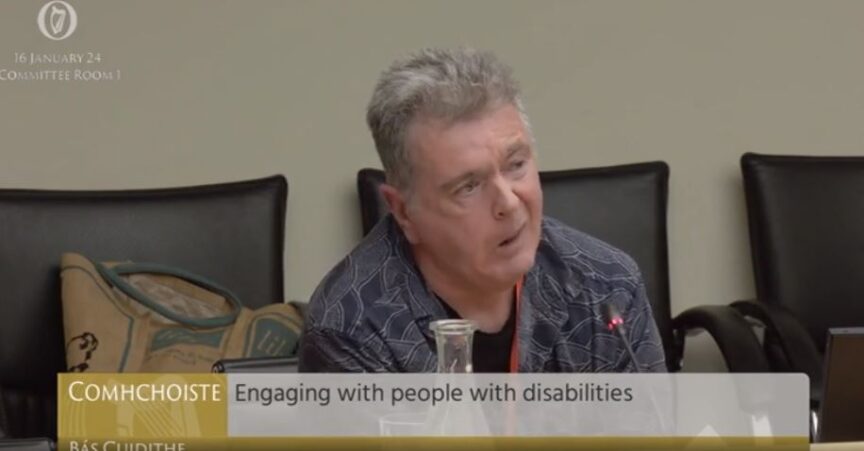The Oireachtas Committee on Assisted Dying continues to hold hearings. On Tuesday it heard from representatives of disability groups.
Peter Kearns (pictured), the representative from the Independent Living Movement observed that debates about euthanasia and assisted suicide can easily “trigger commentary with eugenic overtones”. He said that lack of necessary resources and of societal acceptance will make disabled people feel like a burden.
Mr Kearns acknowledged that there is a variety of opinions on end of life issues among the members of his group and disabled people should not be used as “pawns” in this debate. Nonetheless, he stressed the negative impact that the introduction of assisted suicide or euthanasia would have on people with disabilities.
“In other jurisdictions where assisted suicide has been legislated for, disabled people frequently speak about feeling hopeless, ‘having nothing to live for’ or feeling they would be ‘better off dead’ and take the State’s only clear support ‘option’ to cross the Rubicon to ‘clinical assisted suicide’”, he told the Committee.
Many members of Independent Living Movement Ireland believe that the offer of assisted suicide would result in disabled individuals feeling like they are a ‘burden’ on their families, the State, and Irish society, primarily due to a lack of necessary support, according to Mr Kearns.
“We need to be mindful of any discourse in relation to assisted dying that can trigger commentary with eugenic overtones about who is ‘worthy’ of supports to live”, he said.
The Independent Living Movement says that many disabled individuals fear a slippery slope where the concept of ‘dying with dignity’ evolves from euthanising terminally ill people to encompassing those who might end their lives due to societal pressures or the perceived inferiority associated with disabilities.
This concern was confirmed by John Dolan, CEO of the Disability Federation of Ireland.
“It is important that the State does not unduly have an ‘invisible’ hand, or influence, in the decision of someone to end their life because it has not supported disabled people to have a life of independence equal to everyone else”, he said.
Both witnesses were careful to represent the variety of views held by the members of their organisations, but it was clear that both very much fear the “slippery slope” and that the grounds for assisted suicide and euthanasia will swiftly more from the terminally ill to those considered to have a poor quality of life such as people with severe disabilities.
















